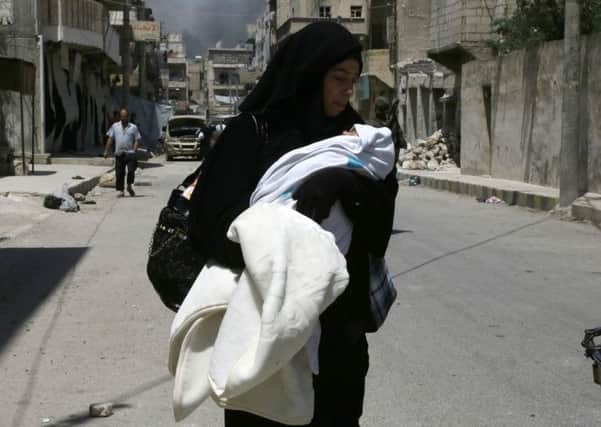Fighting in Syria's Aleppo leaves two million without water


The dire warning came as Syrian activists said government warplanes were bombarding opposition-held parts of the city and the UN called for a “humanitarian pause” in the fighting so that electricity and water networks can be repaired.
Rival parties, however, were seen bringing in reinforcements to Aleppo ahead of an expected new round of fighting after opposition groups breached a government-imposed siege and cut a key government route to the city over the weekend.
Advertisement
Hide AdAdvertisement
Hide AdThe battle for Aleppo, the country’s largest city and former commercial heartland, is pivotal for the Syrian civil war.
It is not clear whether the rebels will be able to keep their new gains, but the breach causes a dent in the Syrian government’s new confidence and territorial expansion, bolstered by Russian air support.
Yesterday, two UN aid officials, Yacoub El Hillo and Kevin Kennedy, said in a statement that the water and electricity infrastructure had been damaged in the fighting.
They said that the total number of civilians living in “de facto fear of besiegement” is now more than two million.
“At a minimum, the UN requires a full-fledged ceasefire or weekly 48-hour humanitarian pauses to reach the millions people in need throughout Aleppo and replenish the food and medicine stocks, which are running dangerously low,” the two said in a statement from Damascus.
With fighting disabling the power to the city’s water pumping facilities, Aleppo residents have had access to running water for less than 24 hours since the end of last month.
UNICEF’s Syria representative, Hannah Singer, said “families in Aleppo are facing a catastrophic situation” and warned of a “grave risk” of waterborne diseases.
The World Health Organisation said more than 15 Aleppo doctors who were outside the city when the government laid siege to the eastern part of it in mid-July and were now unable to return.
Aleppo was once Syria’s commercial capital and also boasted a rich architectural and archaeological heritage.
Much of it has been destroyed or looted during more than five years of war.